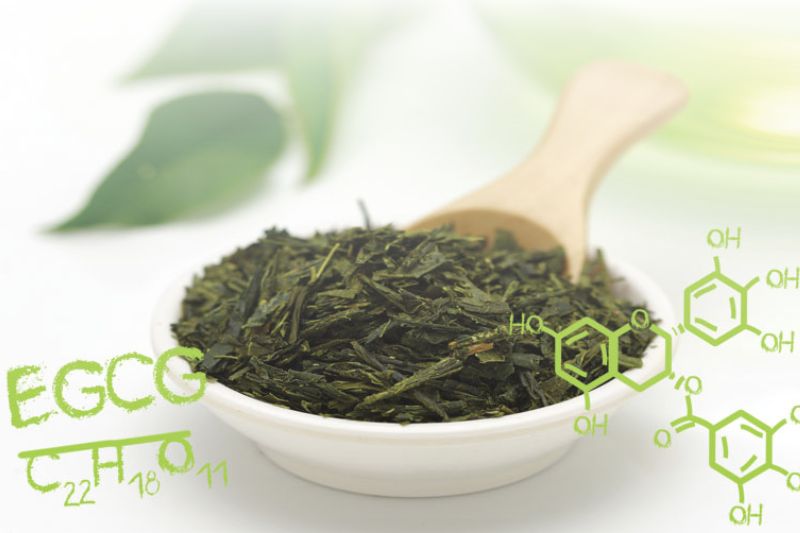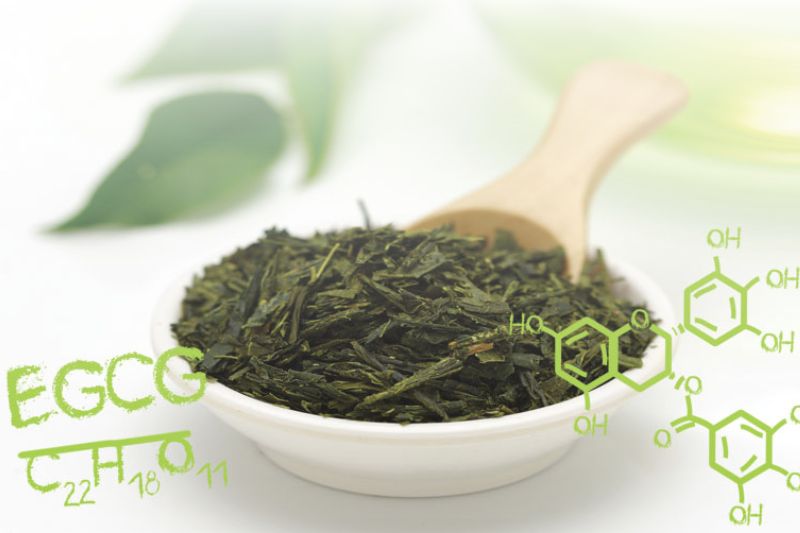Welcome to Part Four of the Green Tea Science series! This article will answer 15 commonly asked questions about green tea and vitamins. We're going to cover important topics relating to vitamins and green tea, including how many vitamins are in green tea and much more.
Everything You Need to Know about Green Tea and Vitamins
If you have not yet read the first two posts in this series, you can find them here:
Part 1: Polyphenols, Catechins and EGCG
Part 2: Tannin, Gallic Acid
Part 3: Caffeine
- What are the nutrients found in green tea?
- What are vitamins?
- How are vitamins different from minerals?
- What are the vitamins found in green tea?
- How does green tea's vitamin content compare to that of other kinds of tea?
- Which vitamin is most dominant?
- Which among these vitamins is the rarest to find in food?
- What benefits do the different vitamins in green tea deliver?
- What vitamin-rich foods to which green tea compares?
- Which green tea variety is the richest in vitamins?
- Are some of green tea's vitamins lost in the processing?
- Are some of green tea's vitamins lost in the brewing?
- Will steeping tea longer better allow optimal extraction of vitamins?
- When is the best time to enjoy green tea for optimum vitamin absorption?
- Is it okay to take vitamin supplements on top of drinking green tea?
Introduction
Green tea is a refreshing beverage and a powerhouse of essential vitamins and antioxidants. It supports overall health, improves immunity, and enhances metabolism. But do you know which vitamins are naturally present in green tea and how they interact with your body? This article will explore the essential vitamins in green tea, how they work, and the best ways to retain their benefits.
Key Vitamins in Green Tea
Green tea contains a variety of vitamins that contribute to its health benefits:
-
Vitamin C – Boosts immunity and promotes healthy skin.
-
Vitamin B2 (Riboflavin) – Supports energy production and metabolism.
-
Vitamin E – Acts as an antioxidant, protecting cells from damage.
-
Folic Acid (Vitamin B9) – Essential for cell growth and heart health.
These vitamins play crucial roles in keeping your body strong, energized, and resilient.
1. What are the nutrients found in green tea?
Besides offering an array of sensations, especially taste-wise, green tea is also globally acknowledged as a natural drink with lots of health benefits. This is because it consists of a significant number of components with a diverse range of positive effects on the mind and body. To enumerate, here are the different nutrients and polyphenols that make green tea extra wholesome:
- Catechins
- Caffeine
- Theanine
- Saponins
- Fluorine
- γ-aminobutyric acid (GABA)
- Chlorophyll
- Minerals
- Vitamins
2. What are vitamins?
By definition, vitamins are organic compounds necessary for human beings in small quantities. They often have to come from food since the body produces very little or not enough. For instance, people do not produce vitamin C, so they need to get it from their diet. Meanwhile, the body does produce vitamin D in response to exposure to the sun, but it needs to be boosted with that derived from food or supplements.

The following are classified to be essential vitamins:
-
Vitamin A
-
Vitamin B complex
-
B1 (Thiamin)
-
B2 (Riboflavin)
-
B3 (Niacin)
-
B5 (Pantothenic acid)
-
B6 (Pyridoxine)
-
B7 (Biotin)
-
B9 (Folate)
-
B12 (Cyanocobalamin)
-
Vitamin C
-
Vitamin D
-
Vitamin E
-
Vitamin K
3. How are vitamins different from minerals?
We usually see vitamins and minerals lumped together. They're obviously two separate groups of nutrients, but how are they different from each other? As mentioned, vitamins are organic substances, meaning animals or plants make them. On the other hand, Minerals are inorganic, which means that they come from water or soil. They are absorbed or consumed by plants and animals. The human body needs both vitamins and minerals in small amounts to thrive. Both happen to be abundantly present in green tea.
4. What are the vitamins found in green tea?
Green tea is acknowledged as a great source of vitamins. It has vitamins A, C, and E, as well as some of the B vitamins. Some green tea varieties, especially the popular green tea powder Matcha, boast even more. For instance, besides A, B, C, and E, Matcha also has vitamin K.
5. How does green tea's vitamin content compare to that of other kinds of tea?
Green tea is reported to be the healthiest tea. As a matter of fact, it is known to have higher concentrations of vitamins than most other drinks. This pretty much makes it a superior beverage altogether. In comparison to other tea varieties, green tea is able to retain more vitamins since its production process allows it. Many other types of tea lose a lot of the original vitamin content of the tea leaves because they also go through a fermentation process.

6. Which vitamin is most dominant?
Green tea is rich in the vitamins it contains, but commercially available green tea is notably high in vitamin C. It typically contains 280 mg in 100 g of dried leaves.
7. Which among these vitamins is the rarest to find in food?
Among the vitamins, B12, D, and K are considered the hardest to get from the usual diet, hence the general recommendation for supplementary intake. Green tea does have vitamin K, which helps boost its status as a superfood. It is essential for bone and blood health. It also plays a crucial role in various physiological functions. Unfortunately, it's not found in many foods, just in leafy greens and some spices. Neither is it present in many multivitamin supplements. Food manufacturers rarely consider fortifying their products with vitamin K, either.
8. What benefits do the different vitamins in green tea deliver?
Here's a list of green tea's vitamins and their corresponding benefits to people's health.
-
Vitamin A: This particular vitamin is commonly associated with eye health and is needed to maintain nighttime vision.
-
Vitamin B-complex: The B vitamins are essential for daily health and cellular survival, with a significant impact on how the body deals with stress and carries out metabolic processes.
-
Vitamin B1: Also known as thiamin, this vitamin is necessary for the body's proper use of carbohydrates and for helping maintain correct nerve function.
-
Vitamin B2: This B vitamin, also called riboflavin, helps maintain healthy skin and mucus membranes.
-
Vitamin B3: Niacin is a B vitamin made and used by the body to transform food into energy. In addition, it helps keep the nervous and digestive systems, as well as the skin, healthy.
-
Vitamin B6 (pyridoxine) is necessary for the normal development of the brain as well as for the health of the nervous and immune systems.
-
Vitamin B9 (foliate) is absolutely necessary in many instances, particularly in fetal development. It helps prevent fetal neural tube defects as well as arterial sclerosis.
-
Vitamin C: This is a known antioxidant. Antioxidants scavenge cell-damaging free radicals. Vitamin C, in particular, helps maintain skin and mucus membrane health. It's also vital for collagen formation.
-
Vitamin E: Also an antioxidant, vitamin E helps maintain vision, reproduction, blood, brain, and skin health.
-
Vitamin K: This is a nutrient necessary for making different proteins needed for bone building and blood clotting.
How Green Tea Enhances Vitamin Absorption
Green tea provides vitamins and enhances their absorption. The catechins in green tea improve the body's ability to absorb and utilize key nutrients, such as Vitamin C and iron, making them more bioavailable. However, excessive tea consumption can sometimes hinder the absorption of non-heme iron, so it’s best to drink it between meals rather than during.
9. What vitamin-rich foods to which green tea compares?
Sencha, the most popular Japanese green tea, is reported to have four times the Vitamin B2 content of spinach, parsley, and Jew's mallow. Meanwhile, both Matcha and Sencha are said to contain five times the folate (vitamin B9) of spinach and parsley. Its folic acid content is comparable to that of dried seaweed, which boasts among the highest concentrations in any food.
Matcha is also high in vitamin A, with five times the beta-carotene content of carrots. As for vitamin C, Sencha has 1.5 times more than that of red peppers, which are among the most vitamin C-rich vegetables.
When it comes to vitamin E, Sencha has as much as 32 times that of spinach and twice that of chili peppers. Not many foods can beat green tea when it comes to vitamin E content. The caveat, however, is that the nutrient is not water-soluble. This is why it's better to get it from Matcha for effective vitamin E consumption.
In terms of vitamin K, it is a naturally occurring nutrient in the tea plant. Green tea, as usual, is the richest among the different tea varieties. However, only a little is present in a cup of brewed tea—about 0.8 micrograms. This wouldn't compare at all to the more than 100 mcg present in many vegetables.
However, it is important to note that vitamin K could interfere with blood-thinning medications. Therefore, while the vitamin K in brewed green tea is considered negligible, its consumption is still discouraged among those taking blood thinners.
10. Which green tea variety is the richest in vitamins?
Sencha has the most vitamin C among the green tea varieties, but, overall, Matcha is considered the healthiest kind of green tea. This is due to the fact that the actual tea and not just its juice or extract are consumed. Therefore, it has a higher concentration of whatever compounds are present in green tea.
11. Are some of green tea's vitamins lost in the processing?
Green tea is typically steamed after harvest. This process allows the leaves to retain as much of their nutritional content and beneficial compounds as possible. It doesn't go through fermentation like black or oolong tea does.

12. Are some of green tea's vitamins lost in the brewing?
If done right, brewing green tea should extract the right amount of components for consumption. Proper brewing doesn't involve boiling water. Too much hot water will scorch the leaves, damaging their good properties, including taste, aroma, nutritional content, and other health benefits.
13. Will steeping tea longer better allow optimal extraction of vitamins?
Steeping longer would allow for optimum extraction of vitamins and other nutrients, but it could affect the drink's taste so much that it becomes too strong to be palatable. Just follow the proper brewing method for the best tea-drinking experience.
14. When is the best time to enjoy green tea for optimum vitamin absorption?
Most people would start their daily green tea consumption in the morning on an empty stomach, but this is actually not advisable since it may have an unpleasant effect on the liver. Besides that, its caffeine content could also cause dehydration by stimulating the release of gastric acid, which may then lead to stomach issues like an ulcer.
The recommendation is that green tea be consumed between meals (at least two hours before the next meal and two hours after the last one) to fully access its antioxidant powers. Doing so ensures that the antioxidants in green tea do not react with proteins from animal meat or dairy. Also, drinking green tea during meals will hamper optimum nutrient intake, inhibiting the body's absorption of some minerals from food.
With regard to amount, the sweet spot is reported to be between three and five cups of green tea per day for reaping optimal health benefits.
15. Is it okay to take vitamin supplements on top of drinking green tea?
Taking food supplements for added nutritional intake should be fine for those with a regular green tea habit. There are no known interactions between green tea and vitamin supplements.
Despite its general safety, however, there are several different findings on the effect of the combination on the body.
First, timing is an important detail. Since vitamin supplements usually come in multivitamin format with mineral content as well, it's necessary to note that the tannins in tea could interfere with mineral absorption. Second, the caffeine in tea could increase urination. This could lead to a decrease in the concentration of water-soluble vitamins such as vitamins C and B-complex. So, it's best to consume green tea two hours before or after taking supplements.
Third, studies show that taking vitamin C increases the body's absorption of catechins. These are naturally occurring antioxidants available in green tea.
These answers should address most of your concerns regarding green tea and vitamins. Hopefully, it will guide you in shopping for your preferred green tea.
Daily Recommended Intake
How much green tea should you drink to benefit from its vitamins? Most experts recommend:
-
2-3 cups per day for general health benefits.
-
Up to 5 cups per day for maximum antioxidant support.
Drinking green tea in moderation ensures you get the benefits without excessive caffeine intake.
Conclusion & Final Thoughts
Green tea is a rich source of essential vitamins, antioxidants, and nutrients that support overall health. By brewing it properly and drinking it regularly, you can maximize its benefits. Whether you prefer loose-leaf tea, matcha, or tea bags, incorporating green tea into your daily routine is a simple and effective way to nourish your body naturally.
Get Free Bonus Books

Sign up for free to the Green Tea Club to get advice and exclusive articles about how to choose Japanese Tea, and tips, tricks, and recipes for enjoying Japanese tea.
About the author
Kei Nishida
Author, CEO Dream of Japan
Certification: PMP, BS in Computer Science
Education: Western Washington University
Kei Nishida is a passionate Japanese green tea connoisseur, writer, and the founder and CEO of Japanese Green Tea Co., a Dream of Japan Company.
Driven by a deep desire to share the rich flavors of his homeland, he established the only company that sources premium tea grown in nutrient-rich sugarcane soil—earning multiple Global Tea Champion awards.
Expanding his mission of introducing Japan’s finest to the world, Kei pioneered the launch of the first-ever Sumiyaki charcoal-roasted coffee through Japanese Coffee Co. He also brought the artistry of traditional Japanese craftsmanship to the global market by making katana-style handmade knives—crafted by a renowned katana maker—available outside Japan for the first time through Japanese Knife Co.
Kei’s journey continues as he uncovers and shares Japan’s hidden treasures with the world.
Learn more about Kei









